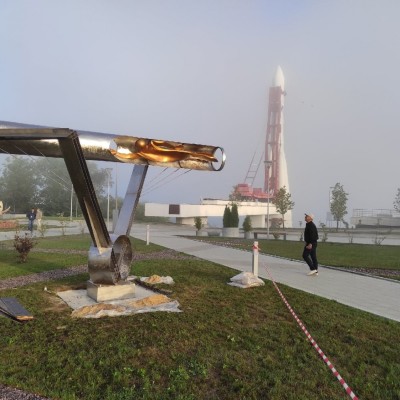Free English Practice is Back!
Hi guys,
Over the past couple of months, I've been working on a side project to revamp my older site, Ecocix, into the new site [FreeEnglishPractice.com](https://freeenglishpractice.com/). I've been focused on adding more lessons, improving audio quality for our listening and writing modes, and enhancing performance for better loading times.
If you have any recommendations for improving the website or features you’d like to see added, please let me know.
Thank you!



Let's talk about some grammar and vocabulary challenges specifically when self-studying (totally not because I need to vent)
Hey everyone, I've been learning English for almost 10 years, and I've faced many ups and downs in mastering grammar and expanding my vocabulary. Here are some major challenges I've encountered, and I’m interested in what you think about them.
# Sentence Analysis
When I first started reading complex texts, I often stumbled upon unfamiliar grammar structures. For example, encountering a third conditional sentence like “If she had studied harder and paid more attention in class, she might have been able to pass the exam with flying colors and secure a scholarship for her dream university” left me baffled. Understanding why “if + past perfect” pairs with “might + have + past participle” took me ages. The hardest thing even is knowing it’s a third conditional sentence if you have just a set of words and not knowing the name of the grammar topic.
Long sentences filled with conjunctions, phrasal verbs, idioms, and passive structures made reading even harder. Sentences like "The project, which had been delayed due to unforeseen circumstances, was finally completed, much to everyone's relief" were a nightmare. Asking friends or posting questions on forums often resulted in slow and unhelpful responses, making reading feel like an uphill battle.
# Word Usage
Building a wide vocabulary is crucial for fluency, but finding accurate and natural-sounding definitions and examples proved difficult. Tools like Reverso Context helped, but they sometimes offered strange-sounding sentences.
I developed my own method for learning words, focusing on transcription, definitions, usage structures, collocations, synonyms, antonyms, and required prepositions. While effective, this approach took a lot of time and effort.
# Words in Context
Occasionally, I come across words I know but with completely different meanings in specific contexts. For example, seeing "bark" in "The bark of the tree is rough" confused me because I only knew it as the sound a dog makes. Understanding why and how a word, phrase, or idiom is used in a particular context can be challenging and time-consuming.
# Word Choice and Nuance
Choosing the right word for a particular context is a common issue. For instance, knowing when to use "affect" versus "effect" can be confusing. Similarly, deciding between "less" and "fewer" often trips me up. I frequently find myself searching for explanations on how to use these words correctly.
These are the main challenges I've faced in my English learning journey. Have you experienced similar issues? How do you deal with them? What other problems have you encountered while learning English grammar and vocabulary? Do you use any services that actually solve any of these problems for you? I'm really interested to hear about your experiences and strategies!
Wi-Fi is a technology that allows devices to connect to a wireless local area network (WLAN) using radio waves. It enables devices such as smartphones, laptops, tablets, and other devices to connect to the internet without the need for a physical wired connection.
Wi-Fi networks are typically set up using a wireless router, which acts as a central hub for connecting devices wirelessly. The router is connected to an internet source, such as a modem, to provide access to the internet for all connected devices.
Here are some key points about Wi-Fi:
1. **Wireless Standards**: Wi-Fi technology is based on various IEEE 802.11 standards, such as 802.11n, 802.11ac, and the latest standard, 802.11ax (Wi-Fi 6).
2. **Security**: It is essential to secure your Wi-Fi network with a strong password to prevent unauthorized access. Encryption protocols like WPA2 or WPA3 should be used to protect data transmitted over the network.
3. **Range and Speed**: The range and speed of a Wi-Fi network can vary depending on factors like the router's capabilities, interference from other devices, and physical obstacles like walls.
4. **Dual-band and Tri-band**: Some routers offer dual-band or tri-band capabilities, allowing devices to connect over different frequencies simultaneously for better performance.
5. **Mesh Networks**: Mesh Wi-Fi systems use multiple access points to create a single, seamless Wi-Fi network with extended coverage and improved performance in larger spaces.
If you have any specific questions or need more information about Wi-Fi, feel free to ask!
It seems like you might be referring to a "Fusion Reactor." Fusion reactors are devices that use nuclear fusion to generate heat for producing electricity. Nuclear fusion is a process where atomic nuclei combine to form a heavier nucleus, releasing a large amount of energy in the process. This is the same process that powers the sun and other stars.
Fusion reactors have the potential to provide a clean and virtually limitless source of energy, as they produce minimal waste and use abundant sources of fuel. However, building a practical fusion reactor that can generate more energy than it consumes has been a significant challenge due to the extreme conditions required to sustain the fusion reaction.
Research and development in the field of fusion energy are ongoing around the world, with projects like ITER (International Thermonuclear Experimental Reactor) in France aiming to demonstrate the feasibility of large-scale fusion power. If successful, fusion energy could play a crucial role in addressing future energy needs and combating climate change.
If you have any specific questions or need more information about fusion reactors, feel free to ask!














